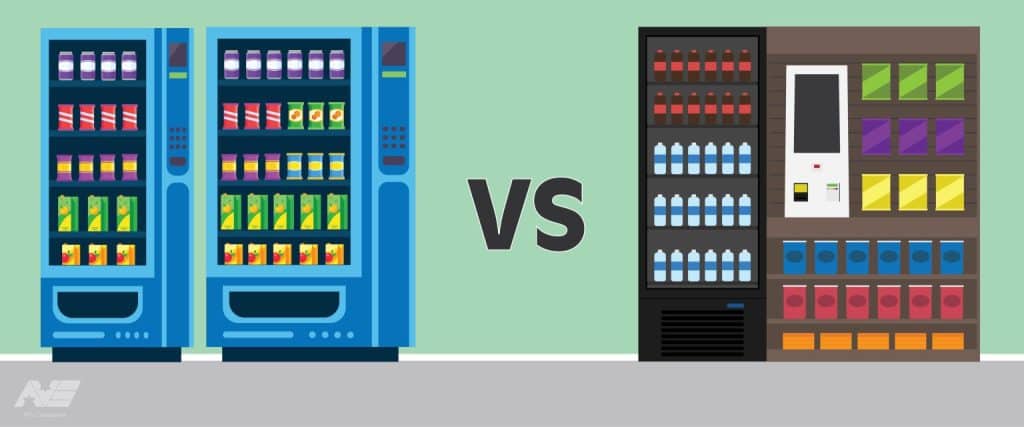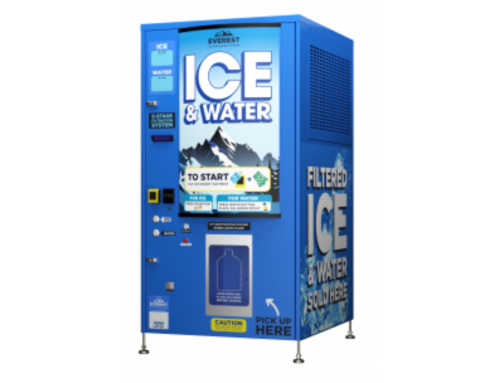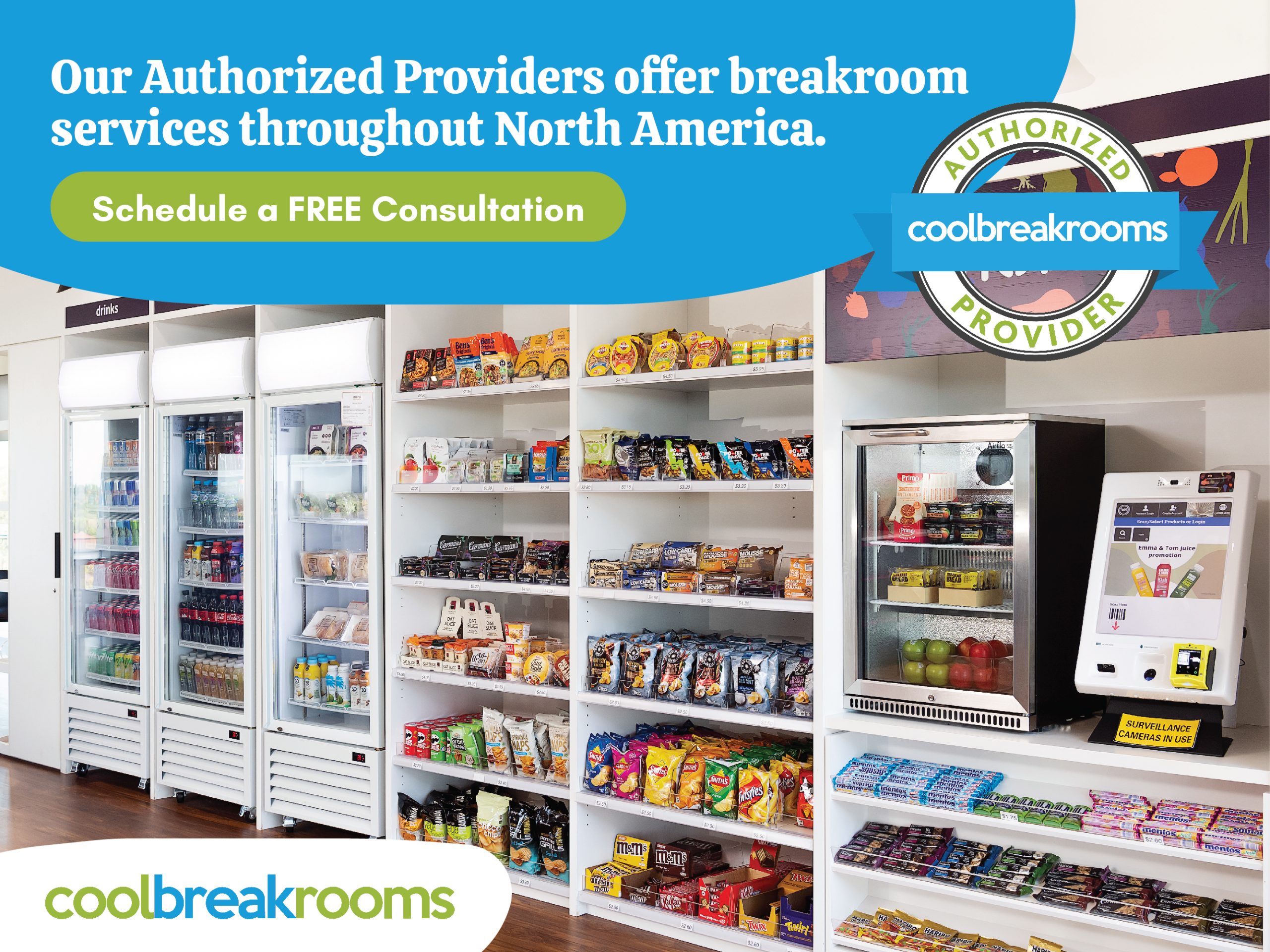
Vending machines and micro markets are both popular options for providing convenient access to snacks, drinks and other products in various locations. While there are many similarities, there are also some significant differences, and it’s important to understand which option is best for each one of your locations.
Size and Setup
Vending Machines: Vending machines are compact and self-contained units that dispense products through a fully automated system. Designed to be standalone units, they can be placed in various locations with minimal set up requirements. Perfect for your high-traffic locations where space may be limited.
Micro Markets: Micro markets are typically larger setups that resemble small convenience stores. They can consist of open shelving units, coolers, product displays, freezers and much more. Micro markets do require more set up time and space, but for a large location with a lot of employees, you are able to offer a more tailored experience to customers.
Customization and Flexibility
Vending Machines: Vending machines typically have limited customization options due to their compact size. They are pre-configured with specific product types and quantities that limit what products will fit inside and vend correctly. There is still flexibility in product selection, you just need to ensure that the products meet the requirements of the shelving.
Micro Markets: Micro markets offer greater customization and flexibility because the shelves and coolers can be rearranged, allowing for changes in product assortment and layout. In addition to snacks and beverages, micro markets are able to offer products like fruits, salads, sandwiches and microwaveable meals. This provides a more extensive variety to cater to customer preferences and needs.
Payment Options
Vending Machines: Vending machines traditionally accept cash and coins, but now more and more machines offer cashless payment methods. Most vending machine payment systems can accept credit/debit cards and mobile payments (Apple Pay, Google Pay).
Micro Markets: Micro markets primarily rely on cashless payment options usually presented on a payment kiosk somewhere within the market. They typically accept credit/debit cards, mobile payments, and other forms of electronic payments through QR codes.
Maintenance and Management
Vending Machines: Vending machines require regular maintenance to ensure proper functioning. They need to be restocked, coins/cash collected and checked for any technical issues that may appear. Monitoring and managing multiple vending machines may require more effort due to having to visit multiple locations.
Micro Markets: Micro markets also require regular maintenance to restock product, clean, and perform equipment maintenance. The larger the market gets; more product selections appear which can create more maintenance and management when comparing to a pre-configured vending machine.
Both vending machines and micro markets have their own advantages and are suitable for different environments and customer preferences. There is no right or wrong option, the choice depends on factors such as available space, desired products, customer expectations and operational capabilities. Don’t fix what isn’t broken, listen to the needs of your customers and provide them with the best option, whether that be with vending machines or a micro market.
source: AVS Companies



















